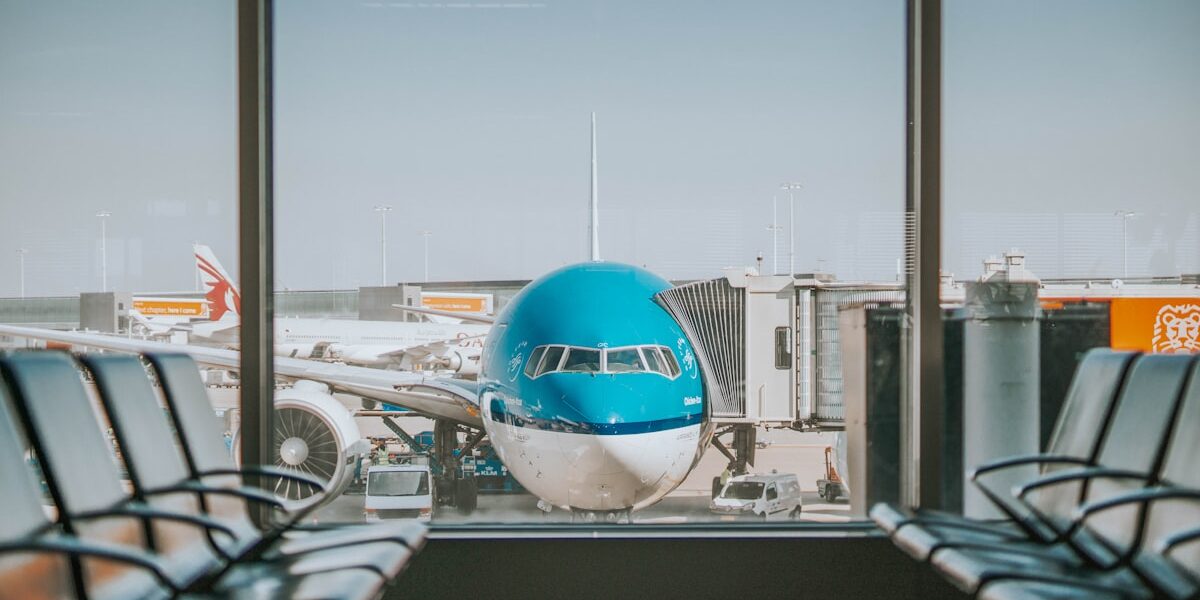I almost gave up on flight school twice before I even started. Seriously. The cost, the time commitment, the sheer number of programs out there — it was enough to make my head spin. Then a buddy who flies regional jets told me to look into Blue Line Aviation. I did, and honestly, I wish I’d found them sooner.

So What Is Blue Line Aviation, Exactly?
Blue Line Aviation is a flight school headquartered in North Carolina that’s been around since 2012. Their whole thing is turning people into commercial pilots — and doing it faster than most traditional programs. Probably should have led with this, but they’re not just some small operation running a couple of Cessnas out of a hangar. They’ve built out a legit training pipeline that feeds directly into airline hiring.
I remember walking through their facility for the first time and thinking it felt more like a small airline operation than a school. Everything was organized, the planes looked new, and there were students everywhere at different stages of training. It had energy, you know?
The Training Programs They Offer
Their flagship program is the Airline Transport Pilot (ATP) track, which runs about seven months. Seven months. That’s intense, and I won’t sugarcoat it — people who go through it describe the pace as relentless. But that’s kind of the point. You come out the other side ready to sit in the right seat of a regional jet, not still fumbling with checklists.
They also have a Private Pilot License program for people who aren’t necessarily chasing an airline career. Maybe you just want to fly recreationally, or maybe you want to test the waters before committing to the full ATP route. Either way, the PPL course covers all the fundamentals — ground school, solo flights, cross-country navigation, the works. I talked to a PPL student who said she went from zero stick time to confidently flying solo in about two months. That tracks with what I’ve heard from other students too.
Both programs lean hard on hands-on flying. They’re not going to park you in a classroom for weeks before letting you touch an airplane. You’re up in the air early, which I personally think is the right approach. You learn faster when the concepts have a real, physical context.
What They’re Flying
Blue Line’s fleet includes Cirrus SR-20s and PA-28s, among others. The Cirrus in particular is a fantastic training aircraft — glass cockpit, forgiving handling, and that whole-airframe parachute system that adds a layer of safety you don’t get in older trainers. I’ve flown a Cirrus once during a discovery flight at a different school, and the avionics alone are a massive step up from the steam-gauge planes I’d seen elsewhere.
Their simulators are worth mentioning too. I know some people roll their eyes at sim time, but modern flight simulators can replicate emergencies and weather conditions that would be genuinely dangerous — or just plain illegal — to practice in a real airplane. Engine failures on takeoff, instrument approaches in low visibility, crosswind landings that’d make your palms sweat. You want to see those scenarios before you see them for real.
The Instructors Make a Difference
This is where Blue Line really separates itself from the pack, at least from what I’ve gathered talking to current and former students. Their instructors aren’t fresh-out-of-training CFIs just building hours to get to the airlines. Well, okay, some probably are — that’s the reality of aviation instruction everywhere. But the school puts a premium on instructor quality, and students I spoke with consistently mentioned getting detailed, personalized feedback after flights.
One guy told me his instructor noticed he had a habit of over-correcting during turns and spent an entire session just working on that. Not moving on to the next lesson, not checking a box — actually fixing the problem. That kind of attention matters when you’re building muscle memory that’ll carry you through an entire career. That’s what makes Blue Line endearing to people who go through the program.
Safety Stuff (Which Matters More Than You Think)
I’ll be honest, when I was first researching flight schools, safety records weren’t even on my radar. I just assumed they were all roughly the same. Wrong. Schools vary wildly in how well they maintain their aircraft and how seriously they take FAA compliance.
Blue Line is FAA Part 141 certified, which means the FAA has approved their curriculum and checks in on them regularly. Their maintenance program keeps every aircraft on a strict inspection schedule, and students are trained from day one to do thorough pre-flight inspections. The emergency procedures training goes beyond the bare minimum too. You practice engine-out procedures, you practice communications failures, you practice what to do when things go sideways at 3,000 feet. It’s not glamorous, but it might save your life someday.
What Happens After You Graduate
Here’s the part that gets most people excited: Blue Line has partnerships with regional airlines. That means when you finish their ATP program, you’re not just tossed into the job market with a certificate and a “good luck.” They actually help connect graduates with hiring airlines. Given the ongoing pilot shortage — and it’s real, every airline exec I’ve heard speak confirms it — qualified graduates are getting picked up quickly.
The alumni network is another underrated perk. Former students who are now flying for various carriers stay connected through Blue Line events and online groups. I’ve seen people post about job openings, give advice on specific airline interviews, even offer crash-pad recommendations for new hires in different cities. That kind of community support is hard to find.
Getting In
The application process is pretty straightforward. You fill out a form, go through a screening to make sure you’ve got the right aptitude and commitment level, and then you’re invited for an interview and orientation. They’re not looking for people who already know how to fly. They’re looking for people who are serious about learning.
I talked to an admissions coordinator who said the biggest red flag is applicants who seem uncommitted or are just exploring options casually. They want people who are going to show up every day ready to work. Makes sense — with a seven-month timeline, there’s no room for passengers. Pun intended, I guess.
Let’s Talk Money
Flight training is expensive. No way around it. The full ATP program at Blue Line runs into the tens of thousands, and that’s before you factor in living expenses, exam fees, and the occasional checkride failure that requires extra training. They’re upfront about costs, though, which I appreciate. Nothing worse than signing up for a program and getting nickel-and-dimed later.
Financial aid is available. They work with students on loan options and there are some scholarship opportunities out there. I’d also suggest looking into the GI Bill if you’re a veteran — several flight schools accept it, and Blue Line is one of them. The financial planning office can walk you through your options, and I’d strongly recommend having that conversation early. Like, before-you-sign-anything early.
The Culture and Community
Something I didn’t expect when I visited Blue Line was how much the students seemed to genuinely like being there. Flight school can be stressful and isolating, especially the accelerated programs. But the culture at Blue Line felt collaborative rather than competitive. Students were quizzing each other in the lobby, swapping stories about checkrides, helping each other study for writtens.
They also do events and seminars with guest speakers from the airline industry, which serves double duty as networking and education. I sat in on one where a Delta captain talked about crew resource management, and even the students who’d been there for months were taking notes. That kind of engagement doesn’t happen by accident — it’s baked into how Blue Line operates.
The Hard Parts Nobody Talks About
I’d be doing you a disservice if I didn’t mention the challenges. The schedule is punishing, particularly in the ATP program. You’re flying, studying, doing sim sessions, and repeating — six or seven days a week for months. Some students hit a wall around month four where everything feels overwhelming. Blue Line does have support systems in place, including access to counseling, but you need to be prepared mentally for the grind.
Time management becomes your best friend or your worst enemy. The students who thrive are the ones who treat it like a full-time job from day one. Show up early, study during downtime, get sleep, repeat. It’s not glamorous, and there will be days you question why you’re doing this. But then you nail a difficult approach or finally solo and it all clicks back into place.
Recommended Aviation Gear
David Clark H10-13.4 Aviation Headset – $376.95
The industry standard for aviation headsets.
Pilots Handbook of Aeronautical Knowledge – $25.42
Essential FAA handbook for every pilot.
As an Amazon Associate, we earn from qualifying purchases.



